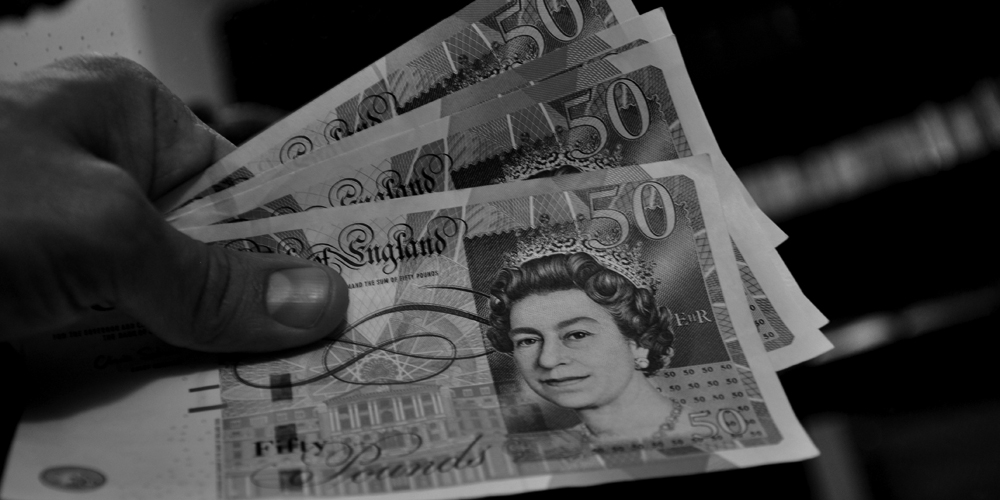A one-off wealth tax
The repercussions of the global financial crisis still shape European politics. First, large public deficits developed as governments, in order to avoid a global depression, bailed out banks and propped up economies. This gave an opening to politicians on the...
The repercussions of the global financial crisis still shape European politics. First, large public deficits developed as governments, in order to avoid a global depression, bailed out banks and propped up economies. This gave an opening to politicians on the right to place deficit reduction as the central economic task in the mind of the public – a place where it remains.
Second, as the need to raise revenue became acute, the public view of the world of tax-avoiding offshore finance swiftly moved from indifference to anger. Scandal after scandal – most recently the Panama Papers – have revealed how some of world’s wealthiest have exploited gaps in the system to keep their wealth away from the tax authorities.
Third, public interest in the sheer scale of wealth inequality has partly multiplied because parties of the right have chosen to reduce the deficit largely through spending cuts – which disproportionately affect the poorest – rather than tax rises. It is difficult to imagine that Thomas Piketty’s Capital in the Twenty First Century, a 700 page economics book containing equations, would have sold over 1.5 million copies in the years before the financial crisis.
And yet, conservatives and populists have proved more adept than the left in adapting to the changed political landscape. The cause of the global financial crisis was the build-up of over-leveraged credit in an under-regulated banking system in which the excesses of financial capitalism were too easily transmitted to the real economy. Yet, against the expectations of some, the left was not the beneficiary of the crisis. Similarly, while public anger at tax avoidance and concern over the vast scale of inequality is acute, there is no guarantee that voters will turn to the left for the answers. The challenge is to provide an authentically social democratic answer to the new politics of the financial crisis and ensuing public deficits – while appealing to the public as they are, not as we wish them to be.
It is in this spirit that this report proposes a ‘unique contribution’: a one-off levy on the passive wealth of the super-rich (those with net wealth over £10 million). The unique contribution takes a more stringent approach with those who have used tax havens or domestic avoidance schemes in the past. Revenue would be used to reduce the deficit, thereby easing pressure on spending cuts and taxes on income and earnings.*
It would also, at least temporarily, reduce inequality. Inequality of wealth is so extreme in the UK that a household at the top 1 per cent of the wealth distribution has wealth (£2.9 million or above) that is 228 times higher than a household just in the bottom 10 per cent of households (£12,550).1 Estimates of the share of total wealth held by the top 1 per cent vary from 12.7 per cent to 23.3 per cent.2 A rough comparison of the total £576 billion wealth owned by the top 1,000 shows that it is greater than the total wealth of the bottom 40 per cent of UK households (who own £496bn), is more than pension wealth of the bottom 60 per cent (£491 billion), and exceeds the “bottom” 90 per cent of UK households’ (non-pension) financial wealth (£546 billion).3
Much of the wealth of the super-rich is held as financial assets such as shares, bonds and derivatives. This generates passive income, which in turn begets passive wealth. Some of this wealth is routed through tax avoidance vehicles and offshore tax havens. Some $140bn of UK households’ wealth is held in Switzerland, with many tens of billions held in other secrecy jurisdictions.4 Much of this wealth would have been ‘under-taxed’.
In the face of such inequality of wealth, citizens can never be truly equal participants in public life, and the super-rich can use their influence to shape the rules of the game to their advantage. Inequality of outcome is then used to purchase inequality of opportunity for future generations.
It is for these and other more prosaic reasons, such as the need to raise revenue, that other countries such as Norway, France and Switzerland have annual wealth taxes which successfully raise small but significant sums. The recurrent nature of annual taxes might lead to several distortionary effects such as increased avoidance, emigration or a reduction in investment or entrepreneurial risk taking. These effects are often overstated but, even so, it is possible to avoid them – and associated political obstacles – with a one-off levy. This is an idea which has been proposed frequently when public debt has reached high levels – by David Ricardo after the Napoleonic wars, by Sidney Webb and Arthur Cecil Pigou after the first world war and by J.M. Keynes and Friedrich von Hayek after the second world war. In Germany a one-off tax, the so-called Lastenausgleich, was actually levied after the war. Indeed the most detailed recent proposal for a one-off levy has been in Germany. Analysts at the Bundesbank and elsewhere have examined proposals and found that it produces few distortions which might inhibit growth, and could raise up to €100bn by taxing the top 0.6 per cent of the German adult population.
The unique contribution proposed in this report is a one-off levy on long-term residents of the UK with net passive wealth over £10 million, with a second, higher, rate charged on net wealth which exceeds a threshold of £20 million. ‘High risk’ taxpayers – those who have moved assets offshore or used domestic tax avoidance schemes, or who are non-doms who pay the remittance basis charge – would be required to undergo a full, stringent valuation exercise. However, ‘low risk’ taxpayers will have access to a streamlined valuation method. Their net wealth will be calculated by adding together the value of their main residence (minus any mortgage), their private pension wealth and their deemed investment wealth. Deemed investment wealth can be easily calculated by tax authorities using data on unearned income submitted on previous tax returns. Unearned income would include all income except that from employment or trading. Wealth which doesn’t generate unearned income, such as jewellery and other family heirlooms, is excluded from the calculation. The simplicity of this method removes the objection that wealth taxes are necessarily intrusive.
Although some who have kept their undeclared wealth hidden offshore, refusing to participate in remarkably generous tax amnesties, might continue to so, they will still be taxed on their visible wealth. The failure to declare themselves as high risk will attract serious penalties if found out at a later date. In recent years, ‘common reporting standards’ have been agreed between countries, whereby both banking information and, sometimes, beneficial ownership details will be automatically exchanged across an increasing number of jurisdictions. This development, in addition to a variety of leaks about offshore finance, means many might consider coming clean. Now is a more auspicious time to launch such a levy than ever before.
It is not known how much revenue might be raised as the tax base – the wealth of the super-rich – is largely terra incognita; the unique contribution itself would be an exercise in map making. This uncertainty is common when other taxes which deal with offshore finance have been introduced, such as the annual tax on enveloped dwellings and the UK-Swiss tax deal. However, the proceeds from this one-off levy would take a significant bite out of the current budget deficit. For example, the recent highly controversial tax credit cuts (which still persist in the future plans for universal credit) were costed at around £4bn per annum or about £20bn over the parliament. It should be possible for a one-off levy to raise sums in the same order of magnitude. If the levy raises more than is needed to reduce the deficit, then proceeds could be used to reduce public debt (as a ratio of GDP) or perhaps to reduce income taxes on low to middle income earners.
The unique contribution also has a restorative purpose. People do not begrudge the likes of JK Rowling or Sir James Dyson their wealth. For both author and entrepreneur earned their money through hard work, and then have proceeded to play the game fairly. Both have been clear about not using tax havens or avoidance schemes. The sense of unfairness that the Panama Papers evokes stems from the belief that there is one rule for those that surfed the offshore waves of the financial bubble, and another for the rest of us. Worse still, much of the burden of deficit reduction has been placed on those who had no hand in the financial crisis – by those who pay their taxes by PAYE, or who depend on social security to get by. The Panama Papers and the Conservatives’ post-crash fiscal choices reveal a society that has become unbalanced. The one-off levy is designed to be as unobtrusive as possible for the likes of JK Rowling, while taking a strict approach to calculating the wealth of those who may have underpaid taxes in the past through the transfer of funds to tax havens or the use of avoidance schemes. The unique contribution is thus partly a conservative exercise in rebalancing: a return in the direction of the status quo ante – through increasing the contributions made by those who may have previously avoided paying their fair share.
The use of the word conservative is not just rhetoric. This is one of the most cautious proposals possible for taxing wealth, perhaps more so than taxing gifts or introducing regular annual wealth taxation. Even inheritance tax is more radical as it has a much lower threshold and a high 40 per cent tax rate, although it is avoided by many. The unique contribution is a one-off, with a high threshold, it tilts the tax system away from earned income towards unearned wealth, it exempts family heirlooms and its assessment method is intrusive only for those who may have underpaid tax in the past. It lies firmly within a moderate Labour tradition of similar measures: from Stafford Cripps’ ‘special contribution’, to Roy Jenkins’ ‘special charge’, to Tony Blair’s windfall tax on the excess profits of the privatised utilities. While in opposition, the centre left needs to rejuvenate its thinking. The unique contribution is an attempt to respond to a British public who are as concerned about the deficit as they are about inequality.
* This report should be read alongside a previous Fabian Society paper in which I proposed that Labour adopt a Financial Sector Revenue Stabilisation Account – a ‘rainy day fund’. This is a type of sovereign wealth fund to be used in a future banking crisis. Our tax revenues – which collapsed in 2008 – are highly dependent on an unstable financial sector. Together, this ‘rainy day fund’ and a ‘unique contribution’ would form a visible yet responsible reply to the accusation that Labour doesn’t ‘fix the roof while the sun was shining’.
1. Comparing a household at 99th percentile, with one at the 10th percentile. Chapter 7 Extended Analyses (Figure 7.7 and table 7.7), Wealth in Great Britain 2012–14, Assets and Wealth Survey. Also see Danny Dorling, What Everyone Needs to Know About Wealth in the UK, New Left Project, 11 September 2014.
2. Facundo Alvaredo, Anthony Atkinson & Salvatore Morelli, The Challenging of Measuring UK Wealth Inequality in the 2000s, Fiscal Studies, vol 37, no 1, 2016.
3. Sunday Times Rich List 2016 p.28. ONS Wealth & Assets Survey Wave 4 (2012–14), Fig 2.3.
4. Gabriel Zucman, The Hidden Wealth of Nations, 2015.

